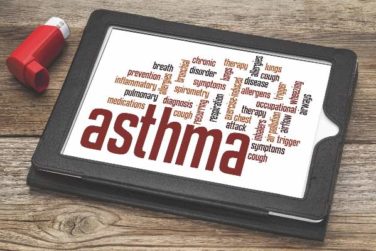AT LUPUS 2017
MELBOURNE (FRONTLINE MEDICAL NEWS) – A reduction in urinary protein creatinine ratio and normalization of inflammatory biomarkers early in treatment of lupus nephritis may predict response rates at 24 and 48 weeks, according to data from the AURION study presented at an international congress on systemic lupus erythematosus.
The AURION study was a single-arm exploratory study assessing the value of an early reduction in proteinuria in 10 patients with active lupus nephritis. The patients were treated with novel calcineurin inhibitor voclosporin (23.7 mg twice daily) in addition to usual care with mycophenolate mofetil and low-dose steroids. The treatment protocol also included a forced steroid taper from 0.5 g at day 0 to 2.5 mg from week 12.
The 48-week study examined the biomarkers of a 25% reduction in urinary protein creatinine ratio and normalization of inflammatory lupus biomarkers C3, C4, and anti–double stranded DNA at 8 weeks, and explored their relationship to remission rates at 24 and 48 weeks. Overall, by week 24, 70% of patients had achieved complete remission, and by week 48, 5 of 7 (71%) had achieved complete remission. Three patients dropped out of the study before week 48: one because of decreased estimated glomerular filtration rate, one because of a systemic lupus erythematosus flare, and one at the discretion of an investigator.
All patients showed a 25% reduction in urinary protein creatinine ratio at week 8, with a mean decrease of 61% by week 24. Researchers also saw a 22% increase in mean C3 levels and a 58% increase in mean C4 from baseline to week 24. There was also a decrease in anti–double stranded DNA.
When researchers examined the specificity and sensitivities of these biomarkers at week 8 in predicting renal response at weeks 24 and 48, they found that a 25% reduction in urinary protein creatinine ratio had a good sensitivity (71% and 75% at 24 and 48 weeks, respectively), but low specificity (33% and 24%).
In contrast, normalization of C4 and C3 by week 8 both showed a specificity of 100% by week 24 and 75% by week 48, but a sensitivity of 29% for week 24 and 25% for week 48.
Normalization of anti–double stranded DNA had a sensitivity of 57% at week 24 and 50% at week 48, and a specificity of 100% at week 24 and 50% at week 48.
Presenter Robert B. Huizinga , vice president of clinical affairs for Aurinia Pharmaceuticals, said the data showed there was unlikely to be one biomarker with both high sensitivity and high specificity.
“Certainly if you use C3, C4, and urinary protein creatinine ratio, you can say to the patient after week 8, ‘I don’t think this is going to work for you. You need to come off this therapy and move to something else,’ ” he said in an interview.
Mr. Huizinga said the company, which recently released 48-week data from the larger AURA-LV study of the same regimen in 265 patients, was now building this week-8 analysis into its studies, and hoped it would also provide an early predictive marker for other clinical trials.
Commenting on the findings, Brad Rovin, MD , professor of nephrology and pathology at Ohio State University, Columbus, and also an adviser to Aurinia, said this predictive ability would be extremely useful for clinicians.
“If a patient isn’t responding appropriately and you can really know that with some degree of certainty at 8 weeks, then instead of waiting 6 months to change therapy, maybe you should change earlier,” Dr. Rovin said in an interview.
This was particularly important in lupus nephritis, as the longer inflammation is allowed to continue, the greater the likelihood that it might tip over into fibrosis, he noted.
The study was funded by Aurinia.





